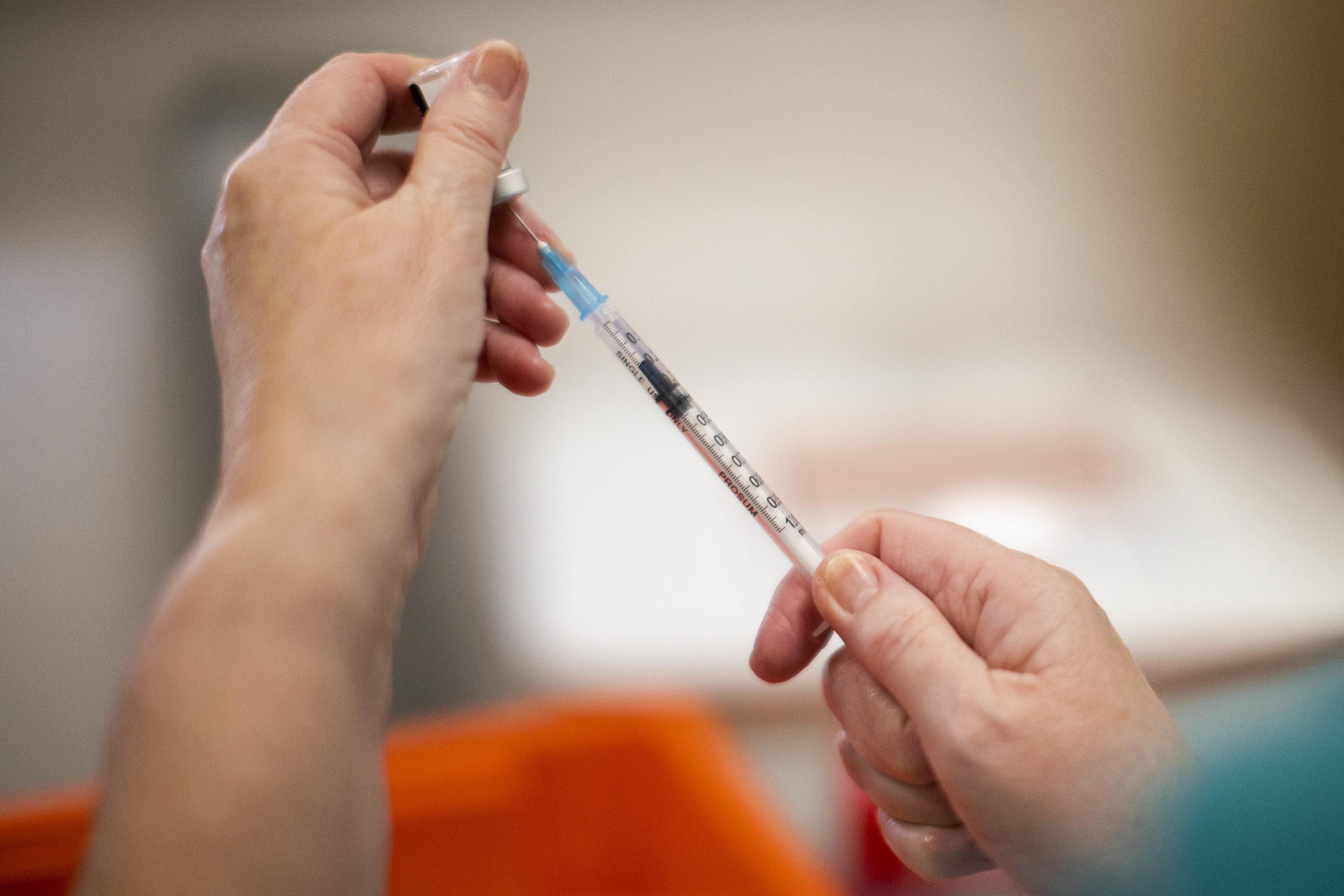Babies and children under five to be offered Covid jab for the first time
The JCVI has advised that clinically vulnerable children aged six months to four years should be offered the vaccincation.

Your support helps us to tell the story
From reproductive rights to climate change to Big Tech, The Independent is on the ground when the story is developing. Whether it's investigating the financials of Elon Musk's pro-Trump PAC or producing our latest documentary, 'The A Word', which shines a light on the American women fighting for reproductive rights, we know how important it is to parse out the facts from the messaging.
At such a critical moment in US history, we need reporters on the ground. Your donation allows us to keep sending journalists to speak to both sides of the story.
The Independent is trusted by Americans across the entire political spectrum. And unlike many other quality news outlets, we choose not to lock Americans out of our reporting and analysis with paywalls. We believe quality journalism should be available to everyone, paid for by those who can afford it.
Your support makes all the difference.Babies and children under the age of five are to be offered the Covid-19 vaccine for the first time.
The Joint Committee on Vaccination and Immunisation (JCVI) has advised that clinically vulnerable children aged six months to four years should be offered the jab.
While children are at low risk of getting severely ill from coronavirus, those who have underlying medical conditions are seven times more likely to be admitted to paediatric intensive care units.
Parents are being warned that the virus is not going away, and encouraged to bring children forward – when they are contacted – if they are eligible.
Professor Wei Shen Lim, chairman of the JCVI’s Covid-19 committee, said: “For the vast majority of infants and children, Covid-19 causes only mild symptoms, or sometimes no symptoms.
“However, for a small group of children with pre-existing health conditions it can lead to more serious illness and, for them, vaccination is the best way to increase their protection.”
Dr Mary Ramsay, head of immunisation at the UK Health Security Agency (UKHSA), said: “Covid-19 is still in circulation, with thousands of new cases reported every week.
“The extra protection offered by the vaccine could be important for young children in clinical risk groups, who are at greater risk of severe illness.
“The virus is not going away so I would encourage all parents to bring their child forward if they are eligible. Parents should wait to be contacted by their local health professionals.”
The UKHSA said more than one million children aged six months to four years in America have received at least one dose of the Pfizer-BioNTech Covid jab since June 2022.
Data from the US showed the most common side effects reported were similar to those seen with other vaccines given in this age group, such as irritability or crying, sleepiness and fever.
The Medicines and Healthcare products Regulatory Agency (MHRA) in the UK first authorised use of the Pfizer-BioNTech vaccine for children aged six months to four years in December last year.
Following that authorisation, the JCVI has advised that children in this age group who are in a clinical risk group should be offered the vaccine.
The committee does not currently advise vaccination of children aged six months to four years if they are not in a vulnerable group.
Eligible children should be offered two doses of the vaccine, with an interval of eight to 12 weeks between the first and second doses.
NHS England has confirmed it will begin offering vaccinations to those eligible in England from mid-June.